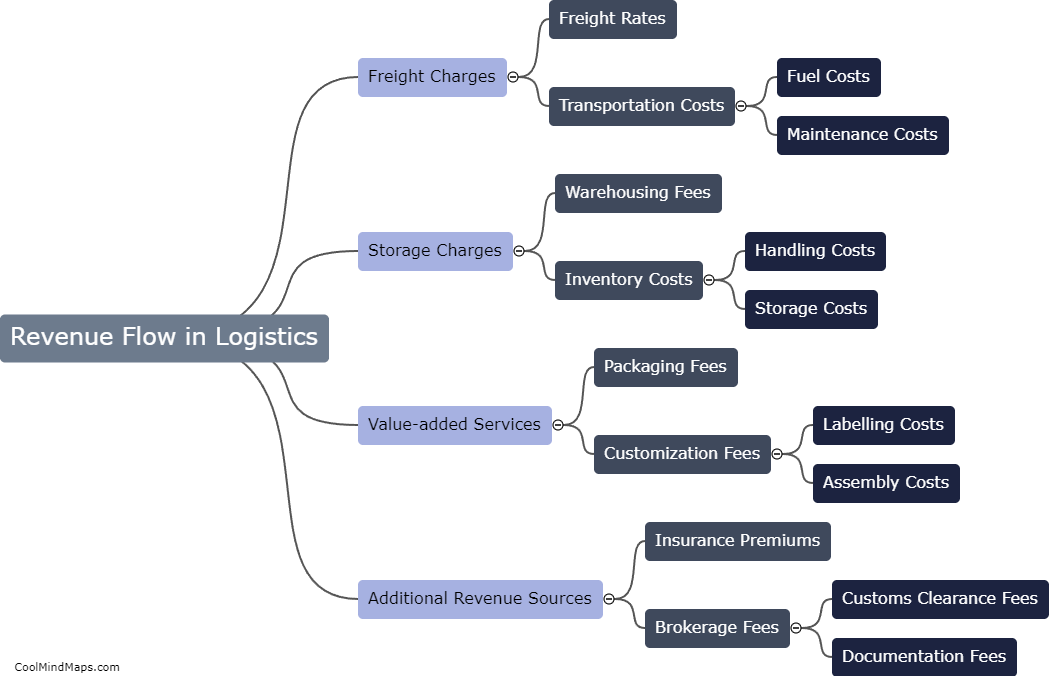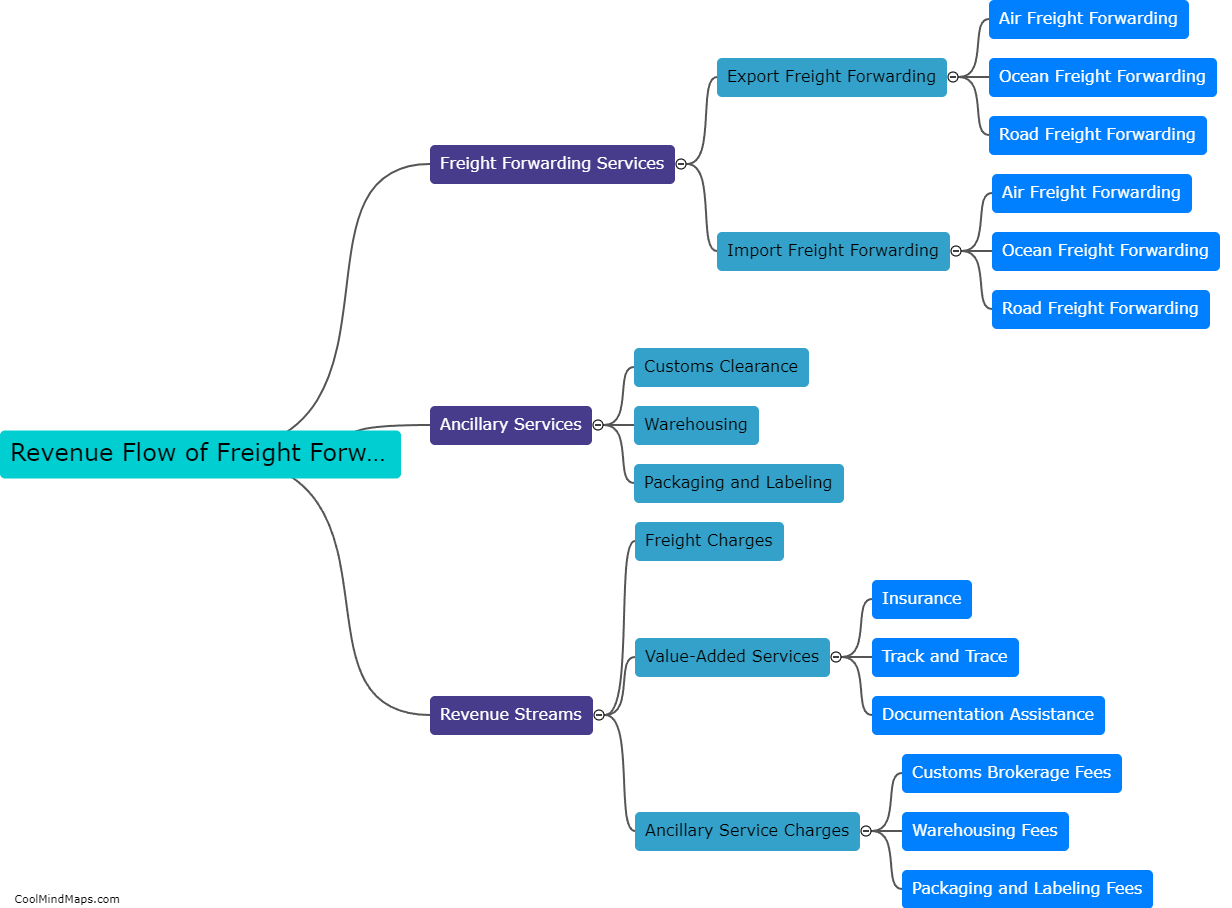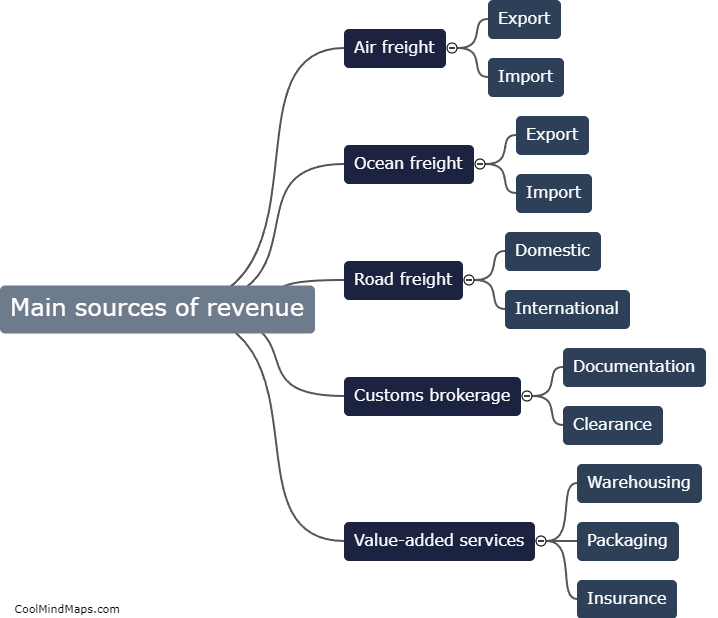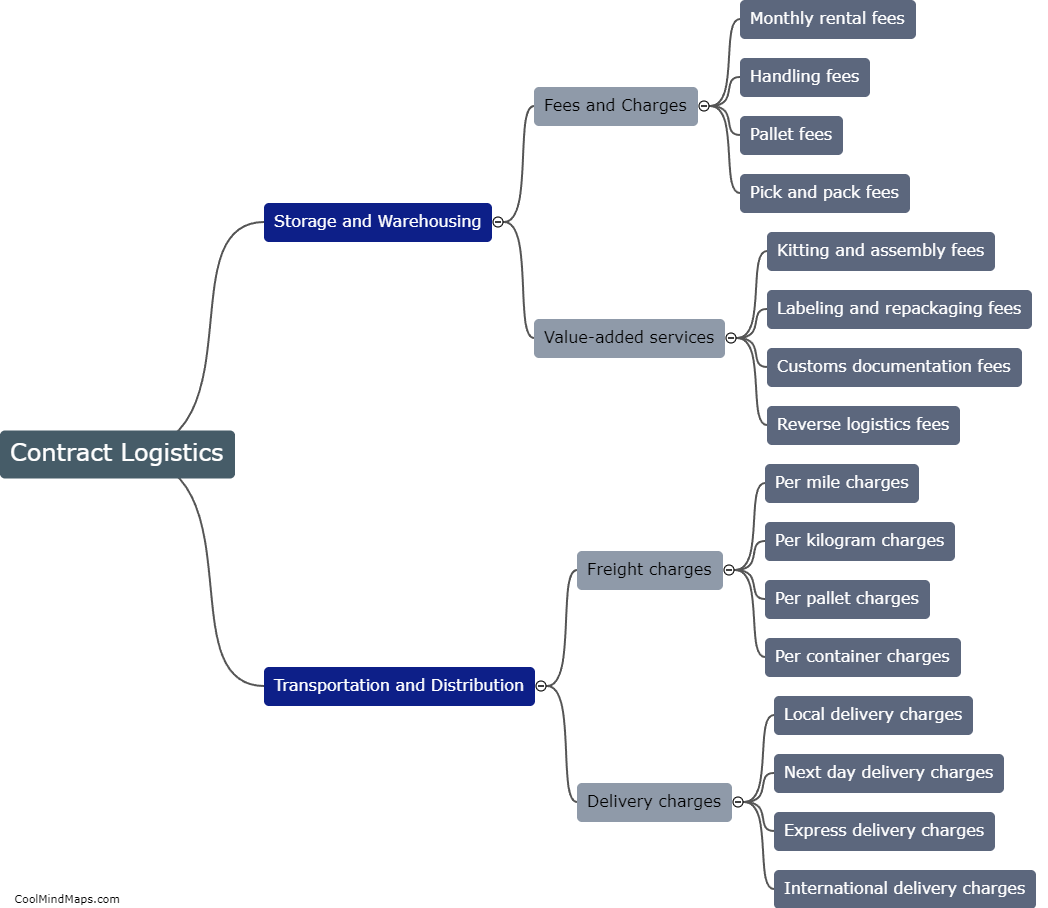How does the revenue flow in the freight forwarding industry work?
In the freight forwarding industry, revenue flows through a complex system that involves multiple players and various revenue sources. Freight forwarders act as intermediaries between shippers and carriers, facilitating the movement of goods across borders. Their revenue primarily comes from service fees charged to shippers for their logistics and transportation services. These fees can be based on factors such as the weight, volume, or value of the goods being transported. Additionally, freight forwarders can earn revenue through value-added services, such as customs clearance, insurance, warehousing, and documentation. They may also negotiate contract rates with carriers, allowing them to earn a margin by charging shippers a higher rate than what they pay the carrier. Overall, revenue in the freight forwarding industry is generated through a combination of service fees, value-added services, and the ability to leverage contracts with carriers.

This mind map was published on 10 September 2023 and has been viewed 124 times.











